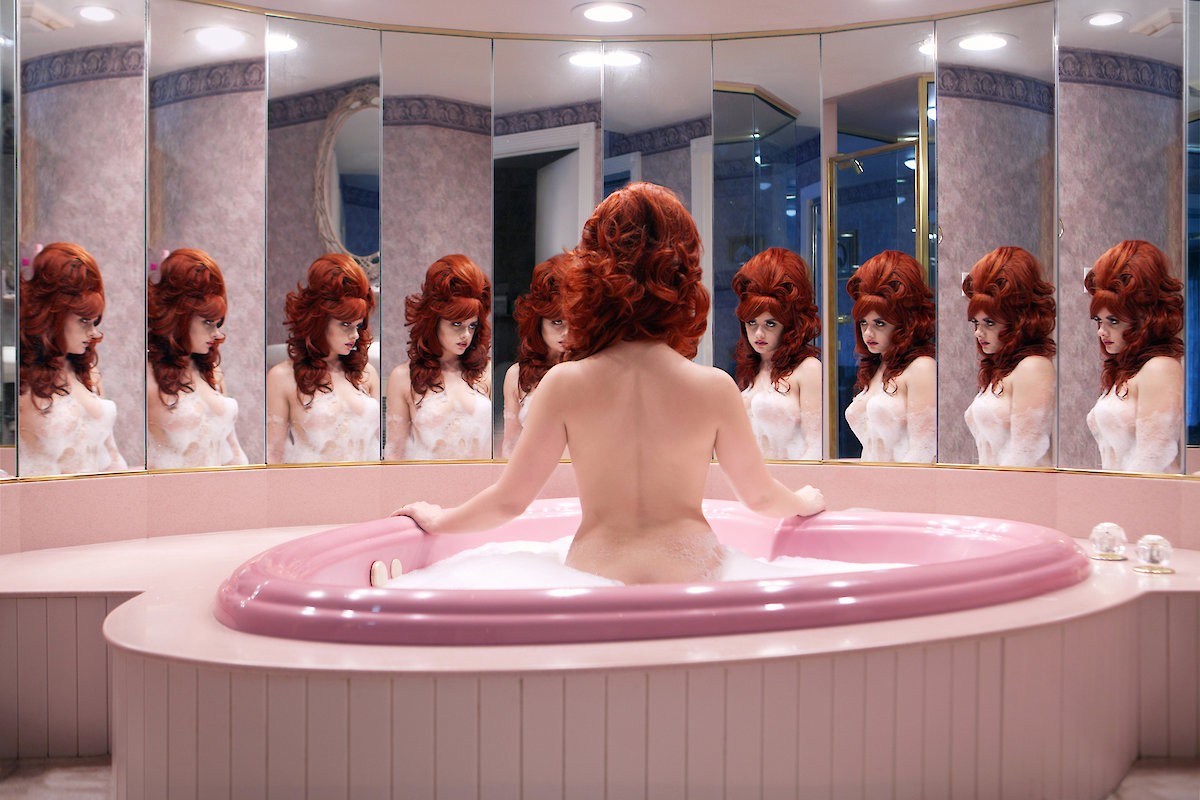Virtual Normality
Women Net Artists 2.0
12 Jan - 08 Apr 2018
Signe Pierce, Molly Soda, Leah Schrager, Refrakt, Nicole Ruggiero, Stephanie Sarley, Arvida Byström, Nakeya Brown, Juno Calypso, Izumi Miyazaki and LaTurbo Avedon
Women net artists 2.0 explore the possibilities and restrictions of social media. They question the female beauty ideals and gender stereotypes that have become standard in the attention economy of social media.
The Internet and social media have allowed a new generation of women artists to make their voices heard. Newspapers and magazines call them Tumblr stars, Instagram artists, or webcam princesses, while the net artists describe themselves as “reality artists” (Signe Pierce), “Instagram models” (Leah Schrager), or “online exhibitionists” (Molly Soda). They use smartphones, tablets, and computers to share their works and stream them live in social media, where the images and videos frequently become viral and then spread across the Internet.
Women net artists 2.0 broadcast their lives, play different characters, create alter egos, and assume a variety of roles. In this way, they make their audiences aware of stereotypes, clichés, and generalizations. The artists willfully blur the line between art and life—and sometimes erode it altogether. Viewers often react with a feeling of unease when artists like Arvida Byström or Molly Soda reflect critically on ideals of female beauty and disseminate images of, for example, their own menstruation or body hair.
The exhibition is devoted to the female gaze in the age of digital stagings of identity. With every new generation and fresh wave of feminism, priorities and media change. New media facilitate the development of novel ideas and the exploration of uncharted possibilities. In response to the rekindling of debates about sexuality and identity on the Internet and in social media, women net artists have developed a hyperfeminine aesthetics. They present themselves as aggressively feminine or girlish and cute. Their colors are pink, purple, and neon.
The artists featured in the exhibition present a female perspective on sexuality, identity, and femininity in the digital age. Their materials are their own bodies, realities, and everyday lives; their stylistic devices are humor, irony, the grotesque, and hyperbole. Signe Pierce and Leah Schrager play with the male gaze by ostensibly engaging in the art of seduction. Nakeya Brown thematizes the political dimension of hair. Stephanie Sarley frees female sexuality from associations with the obscene and the reprehensible, while Molly Soda and Arvida Byström push ahead with the debate on female beauty ideals. Women net artists know that it is especially the female body that is censored and controlled in social media.
In an ideal world, women would not be insulted and belittled; they would not have to feel ashamed whenever they depart from the norm and assert their sexuality. Women net artists 2.0 show what it means to be true to oneself and thereby encourage public debate.
Women net artists 2.0 explore the possibilities and restrictions of social media. They question the female beauty ideals and gender stereotypes that have become standard in the attention economy of social media.
The Internet and social media have allowed a new generation of women artists to make their voices heard. Newspapers and magazines call them Tumblr stars, Instagram artists, or webcam princesses, while the net artists describe themselves as “reality artists” (Signe Pierce), “Instagram models” (Leah Schrager), or “online exhibitionists” (Molly Soda). They use smartphones, tablets, and computers to share their works and stream them live in social media, where the images and videos frequently become viral and then spread across the Internet.
Women net artists 2.0 broadcast their lives, play different characters, create alter egos, and assume a variety of roles. In this way, they make their audiences aware of stereotypes, clichés, and generalizations. The artists willfully blur the line between art and life—and sometimes erode it altogether. Viewers often react with a feeling of unease when artists like Arvida Byström or Molly Soda reflect critically on ideals of female beauty and disseminate images of, for example, their own menstruation or body hair.
The exhibition is devoted to the female gaze in the age of digital stagings of identity. With every new generation and fresh wave of feminism, priorities and media change. New media facilitate the development of novel ideas and the exploration of uncharted possibilities. In response to the rekindling of debates about sexuality and identity on the Internet and in social media, women net artists have developed a hyperfeminine aesthetics. They present themselves as aggressively feminine or girlish and cute. Their colors are pink, purple, and neon.
The artists featured in the exhibition present a female perspective on sexuality, identity, and femininity in the digital age. Their materials are their own bodies, realities, and everyday lives; their stylistic devices are humor, irony, the grotesque, and hyperbole. Signe Pierce and Leah Schrager play with the male gaze by ostensibly engaging in the art of seduction. Nakeya Brown thematizes the political dimension of hair. Stephanie Sarley frees female sexuality from associations with the obscene and the reprehensible, while Molly Soda and Arvida Byström push ahead with the debate on female beauty ideals. Women net artists know that it is especially the female body that is censored and controlled in social media.
In an ideal world, women would not be insulted and belittled; they would not have to feel ashamed whenever they depart from the norm and assert their sexuality. Women net artists 2.0 show what it means to be true to oneself and thereby encourage public debate.

